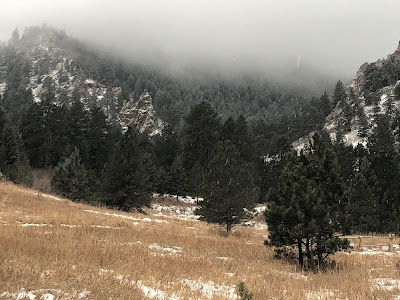A STEP BEYOND OUR COMFORT ZONES - WEEK 2
Day 1
This week I continue talking
about why we should spend less time on computers and more time in nature.
Please join me this week to
learn about how nature can heal us, increase our self-esteem and reduce stress
and frustration and how too much use of smartphones and social media reduce us.
During the following weeks I will post suggestions on how we can all together
walk lighter within this beautiful nature.
THROUGH THINKING ABOUT ONESELF AS IMPORTANT SOCIAL MEDIA TRIGGERS ITS COMPULSIVE USE
As summarized in this article, social media engagement
has been found to trigger “the self-referential cognition network” –
thinking about oneself is important for self-appraisals, and social
competitiveness. In fact, humans devote about 30–40% of all speech to talking about themselves, but this number
spikes to about 80% of social media posts. The fact that social media
participation triggers this survival instinct, could trigger its compulsive use. Why
get addicted to a screen rather than looking at the beautiful skies?
Day 2
REWARD AS RECOGNITION THROUGH SOCIAL MEDIA COULD BE COMPULSIVE
REWARD AS RECOGNITION THROUGH SOCIAL MEDIA COULD BE COMPULSIVE
As summarized in this article, social media engagement
has been found to trigger the “reward network”- possibly the most important
neurological reason or compulsive use of online social network among
adolescents and teens. The increased activity in the part of the brain
associate with reward among adolescents is the reason for social approval and
social outcomes administered by peers to be highly valued. Social media provide
the adolescent with a constant supply of social rewards in terms of peer
recognition and approval, which can serve as a powerful attraction to continued
social media use. The release of dopamine during online social media use also
makes it much harder for people to resist the
activity.
Why not read a book?
Day 3
SOCIAL MEDIA USERS FEEL MORE ISOLATED
Social media users feels more isolated according to a study from 2017 and have increased depression risk by a study in 2014.
No risk of depression in nature, in fact the opposite as I explained in my blog last week.
Day 4
NATURE INCREASES CREATIVITY
A study conducted by Stanford University researchers in
2014 showed that walking in nature improves problem-solving, and divergent
thinking, which is related to formulating original ideas. Both cognitive
processes are tied to creativity.
Day 5
NATURE CALMS AND HELPS US FOCUS
It is shown that urban environments
are draining because of their demands on our attention. Nature, on the other
hand, restores our mental functioning by giving us a chance to think and
rejuvenate our mental resources instead of bombarding us with stimulation.
Day 6
NATURAL ENVIRONMENTS REDUCE THE AFFECTS OF ILLNESS
It is
shown by a study in 2003 that cancer patients
who are regularly exposed to nature experience higher attention. This higher
state of mental sharpness in turn causes them to respond better to treatment,
stick to their treatment regimens, take a more proactive approach during
recovery and experience less stress.
Day 7
A
WALK IN THE PARK REDUCES FRUSTRATION
A study from 2015 on Urban Brain shows
that walking through urban areas increases stress, and frustration in our
brains, whereas walking through green spaces calms us and helps us focus.









Comments
Post a Comment